Faculty and Advisors
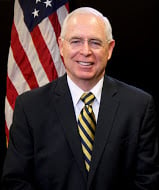
Dr. Middleton became the Director of the Strategic Intelligence Program at Patrick Henry College, Purcellville, VA, in June 2004. Dr. Middleton teaches upper division PHC courses on US Intelligence History; Intelligence Research and Analysis; Advanced Technology and Ethics in Intelligence and National Security; and Strategic Intelligence Special Projects. He previously taught undergraduate leadership for at the undergraduate level. His most recent publications include: War gaming. Encyclopedia of U.S. Intelligence, 2012; Cyber Assurance: Technical Developments and Cognitive Issues, presented at the National Defense University’s First, Cognitive-Cyber Conference, August 2011; "Avatars or Robots? The Human Factor in Overcoming Information Overload." He presented at the Military Operations Research Symposium (MORS), June 2010; "A Maturity Model for Intelligence Education." American Intelligence Journal, Winter 2007/2008. He also authored, “Religion in Russian Geo-Political Strategy,” published in Providence Journal, Winter 2017.
Dr. Middleton retired in the rank of Colonel from the U.S. Air Force in 1997. During his time in the U.S. military, he served in various positions in research and development, systems acquisition, and space operations in the continental U.S. and overseas locations. Dr. Middleton graduated in the top ten percent of his class at the United States Air Force Academy in 1970 with a Bachelor of Science degree in Physics. Dr. Middleton is a military veteran with 28 years of commissioned service. Dr. Middleton holds numerous Air Force and Joint military decorations, and is certified as a Department of Defense Level III Program Manager. His Doctorate in Strategic Leadership is from Regent University.
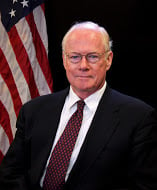
Professor Binnie has a B.A. in History from North Park College and a J.D. from the Northern Illinois University College of Law. He is currently a Senior Consultant to several U.S. Intelligence Community agencies. As a retired FBI Supervisory Special Agent, in addition to a variety of field assignments, he served as the FBI's Chief Counterintelligence Strategist and Chief of National Security Training. He taught, presented, or briefed at most U.S. Intelligence Community agencies, several U.S. Embassies, and Senate and House intelligence oversight committees. While in the FBI he was also an adjunct instructor for NSA. In 1999, Professor Binnie won the Rubicon Award of Excellence for “extraordinary service in building bridges of understanding, cooperation, and synergy between the FBI and CIA.”
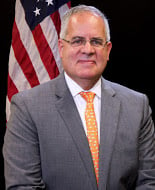
Mr. David R. Shedd is a Visiting Distinguished Fellow at the Heritage Foundation, where he provides his over thirty years of national security expertise to formulating policy on intelligence and defense issues to The Kathryn and Shelby Cullom Davis Institute for International Studies at The Heritage Foundation. Prior to retiring from government service, he served as Acting Director and Deputy Director of the Defense Intelligence Agency from August 2010 to January 2015. In this capacity, he managed of a workforce with more than 16,500 military and civilian employees worldwide.
He previously served as the inaugural Deputy Director of National Intelligence for Policy, Plans, and Requirements, where he led the review of Executive Order 12333, the foundational U.S. intelligence policy, approved by President George W. Bush in July 2008. Prior to that he served as Chief of Staff and, later, Acting Director of the Intelligence Staff to the DNI; and as the National Security Council’s Special Assistant to the President where he was directly involved in the implementation of intelligence reform stemming from the 9/11 Commission report in July 2004. Mr. Shedd also served overseas in the U.S. Embassies in Costa Rica and Mexico, and held a variety of senior management assignments in the U.S., including Chief of Congressional Liaison at CIA. He holds a B.A. degree from Geneva College and a M.A. degree from Georgetown University’s School of Foreign Service in Latin American Studies.
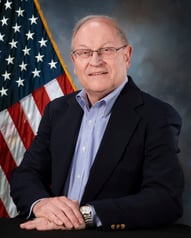
Edward L. Waltz is a former Distinguished member of the Technical Staff, Virginia Tech, and an author of numerous technical publications, including: Quantitative Intelligence Analysis; Information Warfare: Principles and Operations; Multisensor Data Fusion; Quantitative Intelligence Analysis: Applied Analytic Models; Counterdeception Principles and Applications for National Security; and Knowledge Management in the Intelligence Enterprise. Prior to joining the Virginia Tech staff, he was the Chief Scientist for Intelligence at BAE Systems Advanced Information Technology, and before coming to BAE was Technical Director for Intelligence Systems at General Dynamics. He also served as a Manager for Information Understanding Programs at ERIM International.
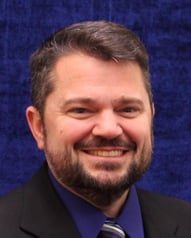
Wallace Kelly brings a wealth of real-world business expertise and teaching experience to the SI Program. He formerly was a Curriculum Author and Instructor for Global Knowledge company, 2004-2015. Prior to that he was a Senior Scientist and Research Scientist at Rockwell Scientific Company, and a Senior Design Engineer for Rockwell Collins, 1997-2004.
He earned a Ph.D. in Electrical Engineering from Texas A&M University, has published in multiple-peer review publications, holds seven invention patents, and has run his own small business since 2005. He is a homeschool father, and he and his wife are residents of the Purcellville area and have multiple children who are Patrick Henry alumni or are currently enrolled.
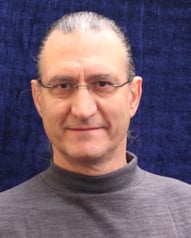
Dr. Will Williamson is currently an Associate Research Professor of Electrical and Computer Engineering Department at the Naval Postgraduate School’s Center for Multi-INT Studies. He holds a PhD in experimental Physics, focused on materials for microelectronics. Will began his career as a Marine Corps helicopter pilot and has a passion for advancing the mission of the DoD and Intelligence Community. He has worked for Center for Naval Analysis, Institute for Defense Analysis, DARPA, and MITRE Corporation. His current research interests are in applying machine learning and artificial intelligence to various defense and intelligence applications. In addition to his research, Dr. Williamson currently teaches graduate level courses in Data Science and Cybersecurity and an undergraduate level Introduction to Cyber Warfare at Patrick Henry College.
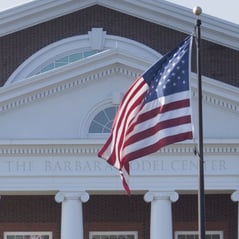
Rich Haver is the former Special Assistant for Intelligence to the Secretary of Defense; and former Chief of Staff of the National Intelligence Council and Deputy to the Assistant Director of Central Intelligence for Analysis and Production. Mr. Haver was selected by Vice President Cheney to head the Bush Administration's Transition Team for Intelligence and then selected by Secretary of Defense Donald Rumsfeld as the Special Assistant to the Secretary of Defense for Intelligence in 2001. He is a recipient of many awards, including the Department of Defense Distinguished Civilian Service Medal, the CIA Distinguished Civilian Service Medal, the Presidential Rank Meritorious Executive Award, and the National Intelligence Distinguished Service Medal.

A retired U.S. marine colonel with assignments in Bosnia, Iraq, the U.S. Central Command, and the Office of the Director of National Intelligence. Former assistant professor in the Department of Philosophy and Religion at Truman State University, and Program Director at the Civitas Program on Faith and Public Life. Former senior fellow at the Ethics and Public Policy Center. Author of “John Courtney Murray and the Dilemma of Religious Toleration” (Thomas Jefferson University Press), and of multiple articles on ethics, political theory, and public policy, including, “Proportionality in Warfare”; and “The Ethics of Counterinsurgency,” in The New Atlantis; and “In the Land of Blue Burqas,” at TheGospelCoalition.org. He holds masters degrees from the Institute for Christian Studies (Toronto), and Westminster Theological Seminary (Philadelphia), and a Ph.D. in Religion, Ethics and Society from the University of Pittsburgh.
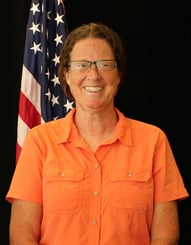
Mary Habeck is a visiting scholar at the American Enterprise Institute (AEI) and a senior fellow with the Foreign Policy Research Institute. Previously, she taught American and European military history at Yale University and taught courses on military history and strategic thought at the Johns Hopkins School of Advanced International Studies (SAIS). From 2008 to 2009, she was the special advisor for strategic planning on the National Security Council staff.
In addition to books and articles on World War I and the Spanish Civil War, Habeck’s publications include “Managing Savagery: Al-Qa’ida’s Military and Political Strategies” (2016), “Fighting the Enemy: The US and Its War against al-Qa’ida” (2017), and “Reforming Intelligence: A Proposal for Reorganizing the Intelligence Community and Improving Analysis” (2016).
She received her Ph.D. in history and M.A. in international relations from Yale University and a B.A. in international studies, Russian, and Spanish from Ohio State University.
.png?width=238&height=239&name=Paul%20Millhouse%20(1).png)
Mr. Paul Millhouse is a Senior Director, Government Solutions, for Maxar Technologies, a position he has served in since 2018. He was previously in leadership roles at Digital Globe and at BAE Systems. Prior to that he served in the U.S. Air Force in space operations.
He has a BS in Aerospace Engineering from Auburn University, and an MS in Operations Research, Statistics from the Air Force Institute of Technology. He is a homeschool father, and he and his wife are residents of Purcellville and have three sons who are Patrick Henry alumni or are currently enrolled.
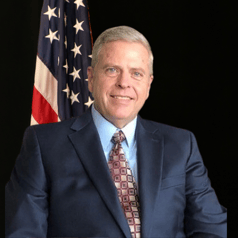
John Bauer recently retired as the Senior Analyst for Russia and Eurasia for Headquarters, Department of the Army. He also worked as an advanced future threat analyst supporting army future warfare concepts. As a retired Lieutenant Colonel in the Army Reserve, he served in multiple tours as a defense economist for the Defense Intelligence Agency and a strategic futures analyst for the US European Command. Prior to government and military service, he worked for Lockheed Missiles and Space Corporation in Sunnyvale, CA and Sun Microsystems in Palo Alto, CA. He holds an MA in International and Strategic Studies from Yale University, a BA in International Relations from the University of California at Santa Barbara, and Executive Certification in Strategy and Innovation from the Sloan School of Management at M.I.T.
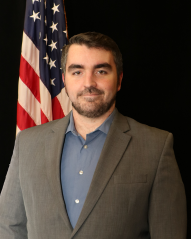
Professor Heiland is currently a Cyber Defense Analyst with a global critical manufacturing firm where he provides first-contact incident response to cyber threats to the enterprise. Prior to that, he served as a contract intelligence analyst in the USIC with the Federal Bureau of Investigation for approximately 5 years, first in Counterterrorism Division and later with Cyber Division. While with the FBI, he briefed a range of audiences including senior division leadership, international law enforcement partners, standards bodies, regulators, and private sector audiences of up to 1500 people on the strategic cyber threat to the US financial sector; including emerging issues like cloud services and open banking. He holds an M.S. from Western Governor’s University (Nov 2023 anticipated, Cybersecurity and Information Assurance) and a B.A. from Patrick Henry College (2015, Government: Strategic Intelligence)
At Patrick Henry College, Professor Heiland assists in managing the SI special projects and is looking forward to being a part of a growing cybersecurity element at the college.
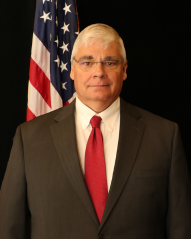
Mr. William Osborne teaches classes on data science tools, big data analytics, and the application of Artificial Intelligence and Machine Learning to data science. Before joining Patrick Henry, Mr. Osborne taught cybersecurity, network protection, and penetration testing techniques at Mercer University in Macon, GA.
Mr. Osborne currently serves as a Director of Health Information Technology for FEDITC, LLC, a government contractor providing information technology and cybersecurity services. He provides oversight for software development programs, manages a program testing software applications for the Defense Health Agency, and works extensively in business development. Before joining FEDITC in 2019, Mr. Osborne worked for Mercer Engineering Research Center, an educational non-profit government contractor, for 24 years. During that time, he served as a Scientist, a Senior Division Manager, and a Principal Cybersecurity Engineer. He developed real-time operational software for the radar warning receiver on the F-15 fighter aircraft, served on several electronic warfare programs, led and managed numerous enterprise software development programs for the US Air Force and other customers, and performed cybersecurity analyses and system hardening. Before that, Mr. Osborne spent almost eight years on active duty with the US Marine Corps as an F/A-18 pilot, including service in Japan, Korea, and Bosnia and Herzegovina. He holds a Bachelor of Science in Applied Physics, Georgia Institute of Technology, 1988 and a Master of Science in Cybersecurity, University of Delaware, 2018
Mr. Osborne is a homeschooling father of six, including two Patrick Henry alumni.
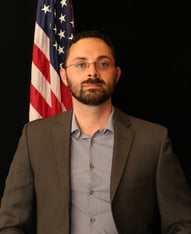
Professor Miller graduated from Patrick Henry College in 2018 with a B.A. in Strategic Intelligence in National Security, went on to study Library Science at the University of North Texas, and is now pursuing a Ph.D. in Computer and Information Science with a concentration in Information Quality at the University of Arkansas at Little Rock.
Chris currently works in the U.S. Intelligence Community.
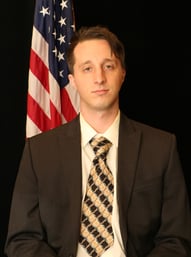
Jonathan Jero is an Adjunct Professor of Government teaching a one-credit course on Analytic Geography and a 2013 graduate of the Political Theory program. He studied statecraft and National Security with an Emphasis in National Defense at the Institute of World Politics, receiving his Masters in 2017.
Despite his primary interests lying in the realms of national security, counter terrorism, geopolitics, and literature, he has since found himself in the world of corporate intelligence and risk analysis by way of the security world. He became part of a rapidly growing Global Security Operation Center for a major international business and has since worked himself into the position of being a contracted embedded intelligence analyst working on a variety of OSINT, alerting, physical risk, executive protection, geopolitical risk, reputational monitoring, forecasting, and crisis response projects. Jonathan’s current employer has requested that he not discuss details of his current employment or clients as part of his adjunct professorship.
Jonathan has participated in various activities with the SI program for the past seven years, foremost the Crisis Management Exercise and Strategic Intelligence Camp. From 2022 he became a SI Alumni Fellow, working alongside special projects before taking the opportunity to teach in the fall of 2023.